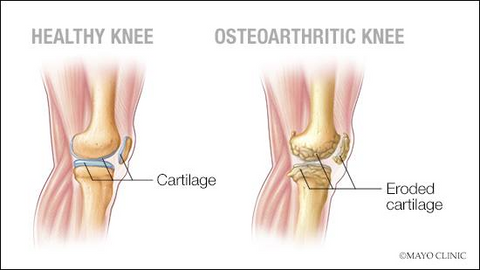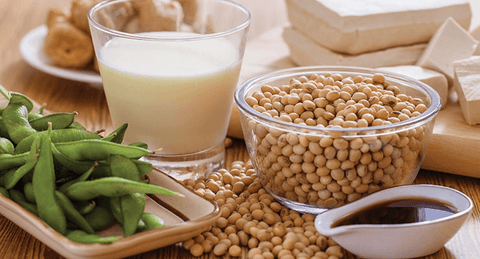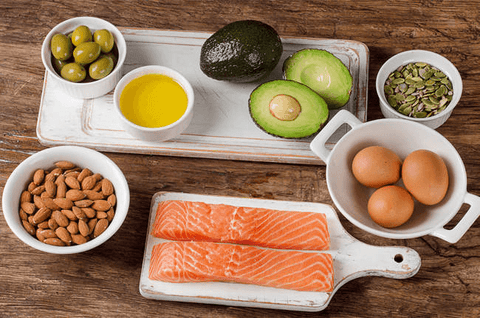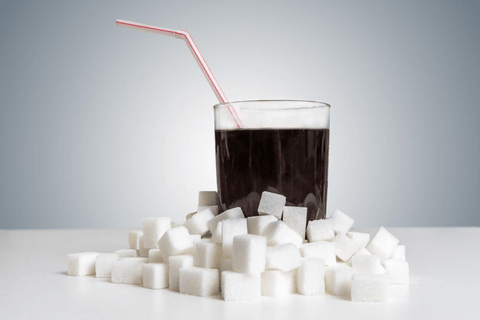
Osteoarthritis is the most common form of arthritis, affecting millions of people worldwide. It occurs when the protective cartilage that cushions the ends of your bones wears down over time.
Although osteoarthritis can damage any joint, the disorder most commonly affects joints in your hands, knees, hips, and spine.
Osteoarthritis (OA) of the knee affects the bones, the cartilage, and the synovium in the knee joint.
Cartilage is a slippery tissue that provides a smooth surface for joint motion and acts as a cushion between the bones.
Symptoms of this can usually be managed, although the damage to joints can't be reversed. Staying active, maintaining a healthy weight and healthy eating might slow the progression of the disease and help improve pain and joint function.
New research even shows that certain foods can help relieve knee pain resulting from osteoarthritis. Here’s what and what not to eat when you are experiencing knee pain.
BEST FOODS TO EAT:
1. Soy Protein

People with knee pain reported less discomfort and used fewer pain meds after eating soy protein every day for three months, according to Oklahoma State University research.
Fresh red and black grapes contain resveratrol and soy products that contain isoflavones, plant hormones with anti-inflammatory properties.
2. Vitamins A, C, and K

In a study of 293 Australian adults, eating plenty of fruit reduced the risk of developing bone marrow lesions: a marker for worsening knee osteoarthritis and pain.
During the production of energy and other processes, the body produces harmful byproducts called free radicals.
These can damage the cells in the body. Free radicals have been linked to inflammation that attacks the joints.
Green leafy vegetables — such as broccoli and spinach — contain vitamins A, C, and K, which are antioxidants.
These help to protect cells from free radical damage. They also contain high levels of calcium, which contributes to bone health.
The knee-friendliest fruits appear to be vitamin C-packed ones, like kiwi, orange, mango, grapefruit, and papaya. The vitamin C in fruit protects the knee joint and supporting structures.
3. Omega-3 Fatty Acids

Certain types of fish are rich in omega-3 fatty acids. These acids help reduce levels of two proteins called the C-reactive protein (CRP) and interleukin-6, which cause inflammation.
Some people with OA have high levels of CRP. This can lead to increased pain and swelling.
Omega-3s help the body respond to inflammation by interfering with certain cells. The omega-3 fatty acids in fish can help stop inflammation before it damages the joints.
Eating a 3-to-6 ounce (oz) serving of fish at least four times a week can help reduce OA inflammation and protect the heart.
Fish that are rich in omega-3s include:
- salmon
- tuna
- sardines
- mackerel
Fish-oil supplements are also available, but eating fish offers greater benefits.
FOODS TO AVOID:
People with OA of the knee should try to avoid some foods, as they may aggravate the condition further.
- Sugar: Apart from contributing to weight gain, sugar can also trigger the release of cells that can increase inflammation. Other foods containing highly refined carbohydrates, such as white bread, may have the same effect.
- Salt: Salt can cause cells to attract water, which could aggravate OA. Joint swelling is a common symptom of OA. Consuming too much salt can worsen this swelling. Processed and prepackaged foods often contain high levels of salt.
- Transfats and saturated fats: These are common in processed foods and baked goods, but they can trigger inflammation.
- MSG: A food additive that often features in oriental foods and soy sauce, monosodium glutamate (MSG) can also be a hidden ingredient in fast foods, soup mixes, and so on. Other additives, such as the sweetener, aspartame, may have a similar effect.
- Omega-6 fatty acids: Omega-3 may help people with arthritis, but omega-6 fatty acids — which occur in various types of cooking oil — might boost the body's production of inflammatory chemicals. Examples of oils containing omega-6 include corn and sunflower oils.
- Alcohol: The Arthritis Foundation recommends limiting alcohol intake and avoiding smoking. Alcohol may interact with some medications, including pain-relief drugs.
- Food sensitivities: Some people have sensitivities to certain foods. Removing potential allergic or sensitive foods through an elimination diet may be a way to improve symptoms.

